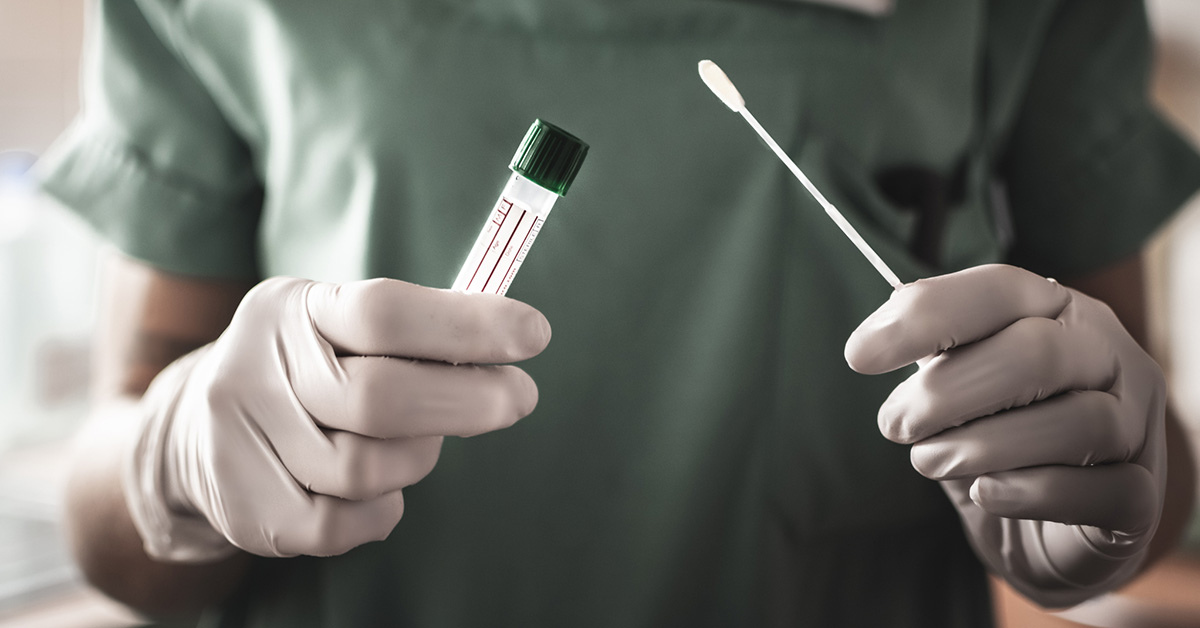
Facts About COVID-19 Through the Lens of a Virus Expert
-
The ever-changing nature of information surrounding COVID-19 can make it hard to pin down the facts and make safe choices for ourselves and our families. And that’s even more true if you or a loved one has cancer and are at higher risk for developing potential complications.
To make sense of what we know after living with the virus for many months and how it relates to cancer patients, we caught up with Glenn Rall, PhD, a virologist and Chief Academic Officer at Fox Chase Cancer Center. Here, he talks about the very best ways to protect yourself, what you can learn from getting tested, possible timeline for a vaccine—and when we finally might be able to put this pandemic behind us.
Q: What have experts learned about COVID-19 that they didn’t know when this coronavirus first emerged?
A: We’ve uncovered so much about the basic biology of this coronavirus and how it causes disease in different people. This information has resulted in much lower mortality rates. For example, studies are now showing that certain ratios of blood cells in the body may be predictors for severity of the disease. So, a doctor can pay particular attention for signs of complications and potentially change the treatment plan for that particular patient.
Q: What can patients and loved ones do to stay safe, particularly since it’s possible for people to spread the disease but remain asymptomatic?
A: Wearing a mask is key. We know that this virus is spread primarily through droplets coming in and out of the nostrils and mouth. A cloth or surgical mask acts like a wall, hobbling the ability of the virus to make its way from one person to the next. Maintaining a six-foot distance and washing your hands matter, too. But wearing a mask is really important, and something that everyone should be doing when they are out of their home and in a space where social distancing cannot be maintained.
Another very important thing that we can be doing is remaining honest with loved ones about where you’ve been and any possible exposure you may have had. If you are facing cancer and a family member or friend recently spent time in a crowded space or traveled to a “hot spot,” you may want to have them wait two weeks before visiting you.
Q: Going into the fall, as other colds and flu viruses historically circulate more widely, what can we all do to protect ourselves and loved ones?
A: It’s more important than ever to get your flu shot. Both influenza and this coronavirus are respiratory viruses. This means that they infect the respiratory system and are spread through droplets. We have no idea how patients will fare if they have both infections at the same time. It could wreak havoc on lung function, even in healthy people. Remember, getting the flu shot does not just protect you, it protects those you love as well because it decreases your ability to transmit influenza to them.
In addition to getting the flu shot, continue to wear your mask, even if you feel that infection rates have dropped to a safe level. Masks don’t just block the spread of coronavirus—they can prevent flu spread, too.
Q: What should we keep in mind about getting tested for the virus or getting an antibody test?
A: Nasal swab tests work by determining whether the coronavirus’ genetic material is present in the secretions obtained from a person’s nasal cavities. They can determine whether you have an active infection—but they’re not perfect. For example, it’s possible for someone who has been infected very recently to test negative, since viral particles have not yet found their way into the person’s nasal cavity. We have also now found that in some cases, it’s also possible for someone who had COVID-19 to test positive well after they no longer have symptoms and are not infectious, since residue from the virus could still be lingering in their body.
Antibody tests are blood tests designed to tell whether a person was infected and their body made antibodies—protective immune system proteins—in response to the virus. Having COVID-19 antibodies means you’re unlikely to contract the virus again, at least in the near future. So the test can provide some assurance in that sense. One problem is that most of the antibody tests we have right now aren’t uniformly reliable. Another problem is that they aren’t always able to discriminate between the coronavirus that causes COVID-19 and other coronaviruses a person may have been exposed to in the past.
Q: When do you expect we’ll have a vaccine?
A: I think between late Winter and early Spring, maybe sooner. Some candidate vaccines are already in advanced Phase 3 trials. Immunization will likely be phased based upon a person’s risk factors, so cancer patients will likely be at the front of the line.
Some people are skeptical about whether a vaccine developed so quickly can be safe. It’s important to know that the vaccine will have gone through clinical trials to assure that it’s safe and effective. If you haven’t yet been exposed to this virus, especially cancer patients and their loved ones should absolutely get immunized when a vaccine becomes available.
Q: Do we have any idea when this will all be over?
A: At this point, just about 1% of Pennsylvania’s population has tested positive for the virus, but we know that’s a vast underestimate. So let’s say that 10% of Pennsylvania’s population has already been exposed to the virus. Our masks can come off once we’ve achieved herd immunity—where at least 80% of the population has been exposed or vaccinated. It’s hard to estimate when we’ll reach that threshold, although a robust vaccination effort will get us there more quickly—and with far less disease.
